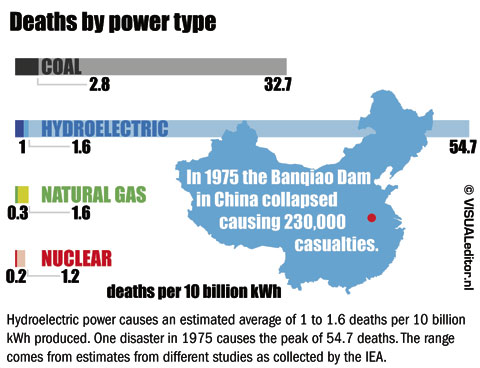In the wake of the nuclear crisis in Japan, Germany has temporarily shut down seven of its reactors and China has suspended approval for all new facilities. But this reaction may be more motivated by politics than by fear of a catastrophic death toll.
Don’t let this craziness distract you from your books just yet; it will only get crazier as the championship approaches. Dutch people are convinced the Netherlands are going to win the World Cup. So either hide or join the orange madness.
Where to watch?
Besides who is going to win, an important question is of course where to watch this event. Will you watch it at home, with your friends or in the local pub? The Sport and Culture Centre at the Mekelweg is going to show the matches on a big screen in the Sport Café. There, students can watch matches together and drink a beer to celebrate the goals and victories.
How to celebrate?
Will you behave and just have a beer or two? Or will you celebrate the Dutch way, with lots of beer and lots of noise? Because when your national team wins and you chose option two, then you have to go out on the street and walk with flags and vuvuzelas, and you will blend right in with your Dutch neighbors. A reminder: do not go celebrate a victory of a team that beats the Netherlands. In that case, you should be happy, but keep it quiet. Dutch people are very serious about soccer tournaments.
I can’t watch! I have to study!
Maybe you are not in the position to celebrate victories, because the World Cup happens to take place during the examination period. The games start at 13:30, 16:30 and 20:30, so find out when your favorite country is playing and try to plan your studying around it. One thing is absolutely for sure: even when you don’t like soccer, you will be dragged into it. Your friends, family, or roommates will eventually persuade you to watch the games together with them. So be prepared, because you won’t be able to resist the pressure and temptation. If you are not able to watch the matches live, you can watch full replays of the games online at www.nos.nl. You won’t be able to soak up the atmosphere, but at least you won’t miss any goals.
Even though every country wants to win the Cup, in the end it is all about having fun together. Go out and watch matches with your friends and plan when to study so you don’t have to miss anything. Finish your projects and then run to the supermarket to get your own orange vuvuzela.


It may be little consolation to those living around Fukushima, but nuclear power kills far fewer people than other energy sources, according to a review by the International Energy Agency (IAE).
“There is no question,” says Joseph Romm, an energy expert at the Center for American Progress in Washington DC. “Nothing is worse than fossil fuels for killing people.”
A 2002 review by the IAE put together existing studies to compare fatalities per unit of power produced for several leading energy sources. The agency examined the life cycle of each fuel from extraction to post-use and included deaths from accidents as well as long-term exposure to emissions or radiation. Nuclear came out best, and coal was the deadliest energy source.
The explanation lies in the large number of deaths caused by pollution. “It’s the whole life cycle that leads to a trail of injuries, illness and death,” says Paul Epstein, associate director of the Center for Health and the Global Environment at Harvard Medical School. Fine particles from coal power plants kill an estimated 13,200 people each year in the US alone, according to the Boston-based Clean Air Task Force. Additional fatalities come from mining and transporting coal, and other forms of pollution associated with coal. In contrast, the International Atomic Energy Agency and the UN estimate that the death toll from cancer following the 1986 meltdown at Chernobyl will reach around 9000.
In fact, the numbers show that catastrophic events are not the leading cause of deaths associated with nuclear power. More than half of all deaths stem from uranium mining, says the IEA. But even when this is included, the overall toll remains significantly lower than for all other fuel sources.
Yet again, popular perceptions are wrong. When, in 1975, about 30 dams in central China failed in short succession due to severe flooding, an estimated 230,000 people died. Include the toll from this single event, and fatalities from hydropower far exceed the number of deaths from all other energy sources.
From New Scientist, 26 March 2011, p.10


Comments are closed.